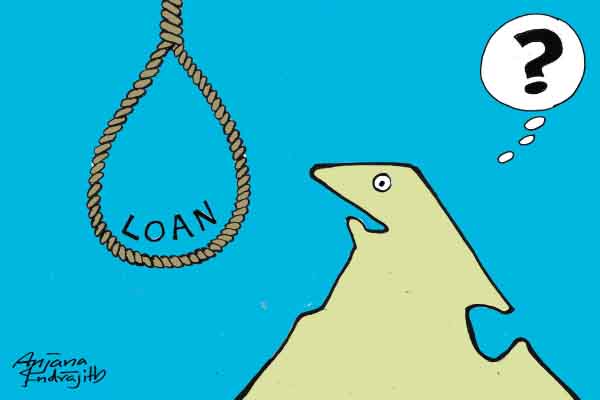In the context of the deepening global economic crisis, the country’s foreign exchange (forex) crisis is not improving. The slight increase in exports has been undermined by increased imports, especially aggravated by the need to import vaccines to meet the Covid-19 crisis. Also, the decision to restrict the import of luxuries and non-essentials is not being enforced effectively. The result is that with more foreign borrowing, our foreign debt is increasing. The annual repayment of debt has reached $ 4.5 billion, with interest repayment alone amounting to $ 1 billion. Neither the Government nor the people appear to realise the gravity of the forex situation and do not act accordingly. Our import policies need to be tightened. The Government has failed to explain to the people the magnitude of the crisis and the need to tighten the belt at all levels, setting a proper example from the top, so as to conserve our forex. The result is the forex crisis.
But internally too the economic crisis is deepening, accompanied by social, political, and health crises. The hunger crisis is severe with many people having only one meal. The loss of income due to the closure of factories and offices and the loss of self-employment is a major factor. In addition, many have had pay cuts. Another major cause is the rise in the cost of goods, especially essentials like food. This has led to the inability to buy essentials, and increasing poverty and hunger. In fact, studies indicate that 60% of the people have incomes below the poverty line. The level of malnutrition has gone up to 18%. Thus, the correction of the hunger problem should be given the first priority by the Government. I appeal to the new Finance Minister Basil Rajapaksa to ascertain the families faced with poverty and hunger and to supply dry rations to them as the first priority.
The Covid-19 pandemic is liable to expand with the spread of the more virulent B.1.617.2 Delta Indian variant in the country. There has to be a country-wide, people-based campaign to curb this. Covid-19 committees should be established in every village and slum. These should detect Covid-19 cases early and institute cluster control measures, and ensure that every person strictly observes the four health guidelines (preventing crowding, ensuring social distancing, ensuring that masks are worn when out of the home, and the effective washing of hands). Covid-19 committees have to be set up in schools as necessary. It must be ensured that all the vulnerable people in the society who are liable to get severe disease or die (elderly over 60 years and those with serious chronic diseases) are vaccinated.
Imported chemical fertiliser should be continued for this period (seasons) of cultivation so that farmers do not suffer. Organic fertiliser should, meanwhile, be produced adequately and be introduced country-wide thereafter.
Another major problem is the high cost of food and other essentials. The revival and strengthening of co-operatives, producers, and consumers is the only way out. This would prevent profiteering by middlemen. The introduction of the new solidarity concept, which ensures that the ownership of enterprises is given to the employees alone, would result in successful outcomes, e.g. the paddy fields in Kerala, India. The strengthening of the state sector in marketing e.g. the marketing department, the Co-operative Wholesale Establishment, etc., would also help.
Measures like these will help to overcome poverty and hunger, and eliminate malnutrition. I urge the Government to think and act on these lines to improve the conditions of the people and to make the country more productive and the people happier.
(The writer is a virologist, government parliamentarian, the Committee on Public Accounts Chairman, and the Lanka Sama Samaja Party Leader)


